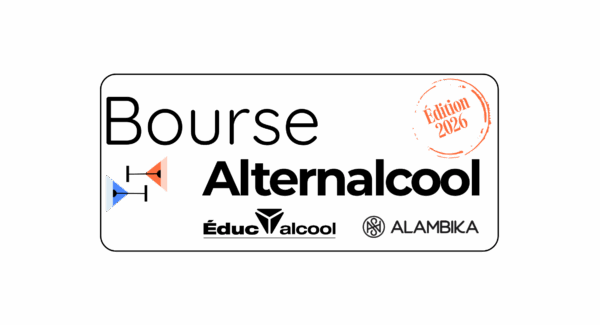The second edition of the Science and Industry event was held last January 30, in the panoramic hall of the Montreal Science Centre with more than 70 people in attendance. The gathering brought together scientists and experts involved in the fields of alcohol and addictions, as well as professionals from the alcohol industry.
The day, which featured conferences and a panel, gave rise to exchanges and conversations about drinking habits and their impact on physical and mental health. The issue of individual and collective responsibility with regards to drinking on Quebec’s roads, sidewalks, and trails was also broached.
A few memorable highlights:
Alcohol: good or bad for your health?
The opening lecture was given by Dr. Stanley Nattel, professor of medicine and holder of the Paul David Chair in cardiovascular electrophysiology at the University of Montreal and the Montreal Heart Institute.
Addressing the subject of the effects of alcohol on coronary health, Dr. Nattel demystified the famous French paradox relating to drinking wine on a daily basis. He presented the results of the most recent studies regarding how drinking alcohol impacts one’s health, particularly in relation to cardiovascular diseases.
A call for collaboration from Dr. Arruda
During the lunch break, participants watched a video from Dr. Arruda about the government’s health prevention policy, which aims to improve the health and quality of life of the province’s population. He focused on the various ways in which industry players, local organizations, and the health ecosystem can intervene with young people to prevent and reduce harm linked to the use of psychoactive drugs and alcohol, or gambling. He also highlighted the efforts made through dozens of local initiatives and asked participants to continue along this path in order to encourage young people to make informed choices regarding their habits.
Discussion: mixing with less risk
The afternoon began with a discussion between Geneviève Desautels, general director of Éduc’alcool, and Sandhia Vadlamudy, general director of the Association des intervenants en dépendance du Québec (AIDQ). They examined ways to mix alcohol, cannabis, or other substances with less risk. The discussion also highlighted the importance of informing and raising awareness among the population about the effects and risks of mixing substances, so that everyone can make informed choices.
The conversation concluded with a call for the non-stigmatization of people who choose to consume and mix substances. The aim is to enable our loved ones and colleagues to be open about the way they consume without fear of being judged for their choices. In this way, we are all able to better look out for one another.
Panel on individual responsibility and manufacturer social responsibility (ESG)
A discussion was then held between specialists from various fields, including Marie-Ève Beaulieu and Lyne Vézina from the Société de l’assurance automobile du Québec (SAAQ), Ian P. Sam Yue Chi from the Corporation des Concessionaires Automobiles du Québec and Joanne Desjardins from a consulting service on governance and strategy. The objective was to present different points of view regarding drinking and travel (car, bicycle, motorcycle, etc.) in order to highlight complex dynamics, existing responsibilities, and levers for action. This discussion dovetailed into a rich reflection around ESG factors and our collective responsibility as consumers, manufacturers, members of government, as well as owners of bars and restaurants. The conversation delved deeper and encouraged the examination of our individual actions, to reduce excessive the consumption of alcohol and encourage a responsible approach to drinking.
GHB conference: clinical and social aspects
Dr. Martin Laliberté, MD MSc FRCPC FACMT in emergency medicine and medical toxicology at the McGill University Health Centre and the Quebec Poison Control Center, discussed GHB and how it relates to alcohol. Offering a historical perspective, the talk allowed participants to better understand where this substance came from and how it spread in sports circles, with a limited application as a medicine, as well as being introduced at parties as an illegal and addictive psychoactive substance. The conference covered the complexity of using GHB, its desired effects, and how the healthcare system is trying to better understand and manage it.
Conference: “Sexuality, gender and alcohol consumption: constantly evolving standards and benchmarks”
The day concluded with a conference by Mathieu Goyette, psychologist, professor in the Department of Sexology at UQAM and associate/associate professor in the Department of Community Health Sciences at the University of Sherbrooke. Addressing the themes of gender and sexuality, he examined the relationship between drinking and how it revolves around these two aforementioned factors. It also sparked reflection on the role and responsibility of the industry in its communications to specific groups such as women or people of sexual and gender diversity.
This second edition of the Science and Industry event concluded with a networking cocktail where participants sampled both alcoholic and non-alcoholic drinks concocted by Alambika.
Thank you to all those who were present for this incredible day. Thank you also for your comments which will help us prepare for our next edition. We’ll see you in 2025!





